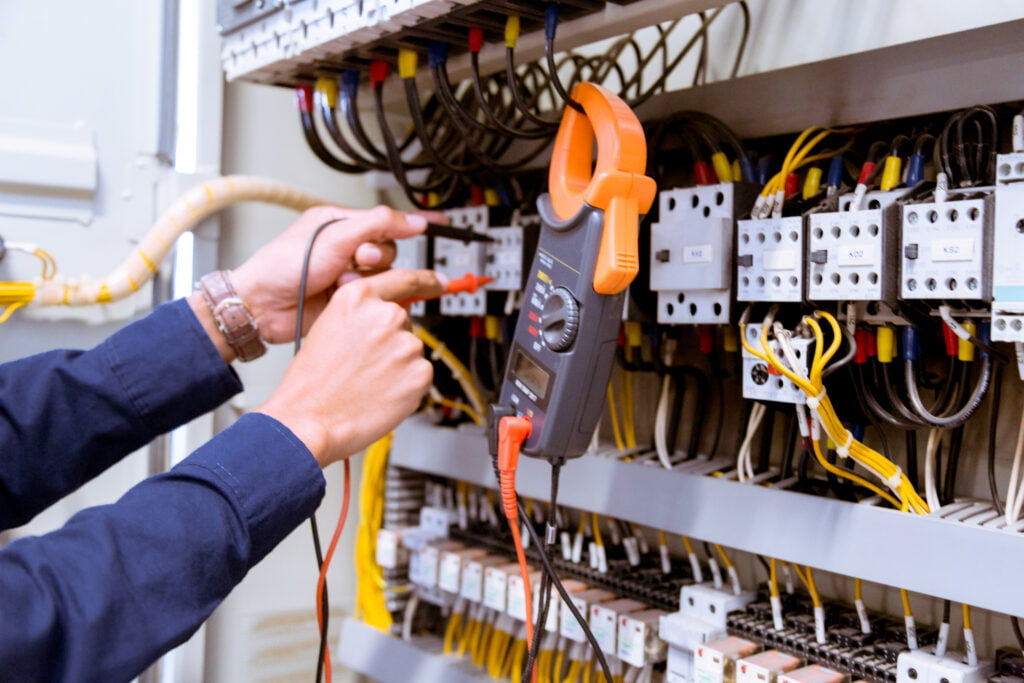How to Become a Electrician
Are you thinking about becoming an electrician? It’s a great way to get started in the trades and make money while learning valuable skills. Becoming a certified electrician requires knowledge of safety regulations, experience on the job, and passing an exam. The first step towards becoming an electrician is to get educated. Most jurisdictions require certification or licensing for electricians so it’s important to enroll in an accredited program through a school or union apprenticeship program. This will provide you with the basic knowledge of electrical theory and safety protocols needed to be successful on the job. Once completed, you can apply for your local jurisdiction’s certification exam which must be passed before you can work as a licensed professional. Let’s dive in a little deeper to answer the question, “how to become a electrician”.

Education Requirements
There are a few steps one must take to become an electrician. While it is not an overnight process, the journey to a successful career in the electrical field can be rewarding and satisfying. Knowing what educational requirements need to be met is the first step toward becoming an electrician.
High School Diploma or Equivalent
First and foremost, typically applicants must hold at least a high school diploma or its equivalent. Those who have finished some college courses may receive preference over other applicants. This is especially true for those who have completed their associate degree. However, if you are applying for a position in one of the unionized fields, such as construction or industrial electrical work, you may be required to hold at least an associate degree.
Math and Science
Are you interested in becoming an electrician? Math and science are essential for success in the field. Learning about electricity, wiring, circuits, and other related topics requires a strong foundation in these two subjects. It’s important to gain an understanding of math and science skills before beginning a career as an electrician.
The best way to prepare is by taking courses or attending classes that focus on math and science concepts like algebra, geometry, physics, chemistry, and engineering principles. Depending on your program of choice, you may also take specialized classes on electrical engineering or electrical systems design. For hands-on experience working with electronics or wiring projects, consider joining a local apprenticeship program or enrolling in internships at electrical companies.
Apprenticeship
Secondly, prospective electricians should enroll in an apprenticeship program that the state’s department has approved of labor or other licensing boards. Apprenticeships generally last for four years and include classroom instruction as well as on-the-job training under the supervision of experienced professionals. Apprentices usually earn a wage during their training and receive benefits. Upon completion of their apprenticeship, electricians must pass a state licensing exam to become certified in the field.
Online Schools
The third option for prospective electricians is to enroll in an online electrical school. A number of online schools offer an associate degree in electrical technologies that can be completed in about two years. Tuition for these programs is usually less than the cost of a traditional four-year program and does not require attendance at class every day.
Job Duties
If you’re looking to become an electrician, the first step is to understand the job duties. An electrician works with electrical wiring and systems in residential and commercial settings. They install, maintain, troubleshoot, and repair wiring, outlets, and fixtures. Electricians also need to be knowledgeable about local building codes and safety regulations as they are responsible for ensuring that all installations adhere to safety standards.
In order to become a licensed electrician, you’ll need to complete an apprenticeship program or vocational training program. Many states require electricians to obtain certification from nationally recognized agencies such as the National Electrical Contractors Association (NECA). After getting your license, you can begin taking on jobs related to your skill set.
Salary & Benefits
If you’re looking to become an electrician, there’s a whole lot more to it than just knowing how to wire outlets and install lights. Electricians are highly skilled professionals. They need to be well-versed in the laws, regulations, and electrical systems that go into building and maintaining homes and businesses.
It takes hard work and determination to become an electrician. However, when you make it, the salary can be quite lucrative. According to ZipRecruiter, experienced electricians typically earn between $45,000-$105,000 per year. However, wages can vary depending on geography and experience level. In addition to your salary, you may also receive benefits such as health insurance or vacation time. With the right training and certifications, many electricians find steady demand for their services. This ensures financial security down the road.
Starting Your Own Company
Starting your own company can be an exciting, but daunting task. If you’re looking to become an electrician and open your own business, there are a few things you need to consider.
First and foremost, it’s important that you get the proper certification and licensure in order to operate as an electrician. Make sure you look into the local regulations. You will also want to contact your state’s licensing board in order to make sure all of your paperwork is in order before you start any electrical work. It’s also essential that you have a detailed knowledge of relevant safety codes related to electrical systems so that when working on projects there are no issues down the line.
In addition, research the area where you will be doing business. This includes getting familiar with pricing for parts, labor costs and any other supplies that may be necessary for a project. You should also take time to think about equipment that may be necessary for your business. This includes the tools and supplies you will use on a regular basis. It’s important to have the right tools and have them in good shape. This ensures that you can get the best results when doing your work.
Tools of the Trade
Becoming an electrician requires specialized knowledge. However, with the proper training and certification, anyone can learn to become an expert in this field. Having the right tools is essential for any electrician. Let’s take a look at some of the must-have items needed to get started!
No matter what type of job you’re doing as an electrician, having all the right tools is essential. The most common items include:
- electrical testers (such as multimeters)
- electrical tape or electrical wire nuts to cover connections
- safety equipment
- safety equipment (such as goggles, gloves from sites like unigloves.co.uk, and ear plugs)
- cordless drills
- a variety of different electrical fittings (such as wire caps, crimp connectors, terminal blocks, etc.)
- an electrician’s tool belt to organize the tools and store them securely when you’re not using them
- wire cutters/strippers
- a variety of pliers are also useful and should be kept on hand at all times – both needle nose pliers and lineman’s pliers come in handy frequently!
- A staple of any electrical toolkit, a good quality screwdriver is useful for just about every job you’ll ever do. The most common type of screwdrivers to have on hand are flat-head, Phillips, and Torx head drivers.
Residential vs Commercial
Whether your goal is to work in residential or commercial settings, becoming an electrician requires knowledge and skill. There are two main types of electricians – residential and commercial – and each has its own unique set of requirements.
Residential
When it comes to residential electrical work, the focus is typically on smaller projects such as wiring homes or replacing outlets. As a result, residential electricians need to have good problem-solving skills in order to safely complete their tasks. It’s also important for them to be able to think through different solutions since no two homes may have the same wiring setup.
Commercial
Commercial settings require more complex electrical work such as large-scale installations or repairs. These electricians must have extensive knowledge of codes and regulations in order to ensure that their work meets safety standards and complies with local laws.
Final Thoughts on How to Become a Electrician
Becoming an electrician is a great choice for anyone looking to enter the trades industry. With the right education and training, you can break into this rewarding career. Whether you’re just starting out or have been in the business for years, here are some final thoughts on what it takes to be successful in this field.
To become an electrician, you’ll need to start with formal education and training. You may choose to pursue an apprenticeship or attend a technical school where you can learn about wiring techniques, safety regulations and electrical theory. After completing your program of study, you’ll also need to take a certification exam before becoming licensed by your state or local municipality.
In addition to specialized knowledge, success as an electrician requires skills like problem-solving, critical thinking and attention to detail.







3 Comments
Pingback:
Pingback:
Pingback: